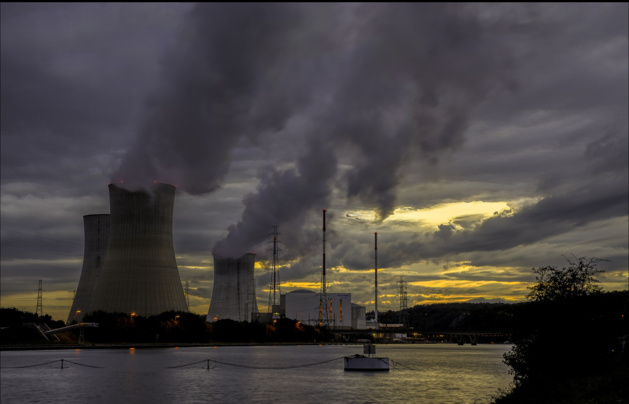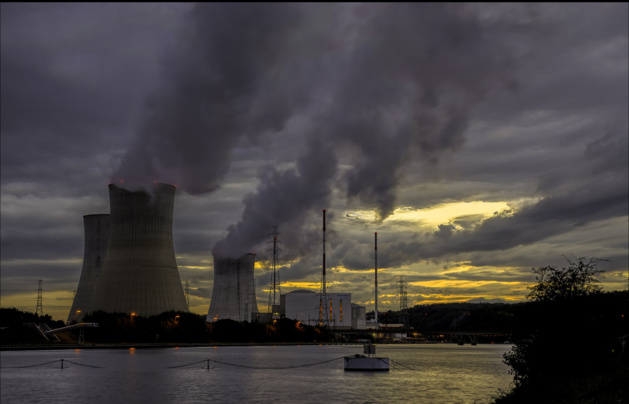
Credits : Olivier Peulen
Nuclear reactors Doel 1 and Doel 2 should then be able to run until 2025. At any rate, the Belgian Federal Parliament took the first step on June 18 when it voted in favour of extending the life of these two reactors. With this bill, Minister of Energy, Marie-Christine Mareghem, hopes to ensure Belgium’s electrical supply during winter 2015. This means avoiding any possibility of blackout. The extension still challenges Belgium’s energy transition, however.
Doel 1 has been shut down since February 15, 2015 and Doel 2 was supposed to shut down this December. In 2003, Belgium decided to gradually abandon nuclear power. Zero nuclear power is now set to 2025. Of Belgium’s seven nuclear reactors, Doel 1 and Doel 2 should have been the first to shut down, but, in the face of emergency, the government finally chose the path of extension.
A conditional extension
Extension is far from being achieved. The vote on the bill only represents the first step before actually relaunching the two reactors. The government will first have to reach an agreement with Electrabel, the proprietary company of the two reactors. In particular, Electrabel requests a "clear vision of the economic and legal framework to accompany the extension". Electrabel estimates that an investment program of the order of 700 million euros will have to be put into place in order to allow relaunching both reactors.
The final decision lies mostly in the hands of the Federal Authority for Nuclear Control (FANC). The FANC must determine if Doel 1 and Doel 2 are sufficiently secure for relaunch. The Authority will take as much time as it feels necessary. It values above all "the safety and security of the reactor with respect to potential civilian and environmental harm. It is not the question of supply for the winter which counts".
Beyond technical matters, the extension of Doel 1 and Doel 2 has also revived debate over the use of nuclear energy on Belgian territory. Organisations such as Greenpeace have made it well known that they will resort to anything possible to stop the relaunch of Doel 1 and Doel 2. For academic and activist Michel Huart, the government’s decision "acknowledges the failure of the 2003 decision made 12 years ago".
Michel Huart is a professor at the University libre de Bruxelles and also Secretary General of APERe (Association for the Promotion of Renewable Energies). For Mr. Huart, the decision to abandon nuclear energy "is not accompanied by relevant measures", particularly in alternatives to nuclear energy. From an electrical point of view, Belgium remains therefore very dependent on its nuclear facilities.
Nuclear dependency
Without the extension of Doel 1 and Doel 2, only three of Belgium’s seven reactors would have been functional for winter 2015. Since March 2014, reactors Doel 3 and Tihange 2 should have also ceased all activity. However, the presence of microcracks in the reactor vessel caused these two plants to close for safety testing. Although Electrabel announced that Doel 3 and Tihange 2 would be unavailable until November 2015, nothing assures their restart by this winter.
Once again, the FANC is the only body able to determine if Doel 3 and Tihange 2 will restart. The FANC’s spokesperson stated on the subject that "At the moment, we have no justification from Electrabel or sufficient information to decide on the relaunch". One must note that shutting down these two plants would cost Electrabel 40 million euros per month.
The possibility that four of seven reactors stay out of use would be problematic for Belgium, a country that depended on nuclear energy for 47% of its electricity produced in 2014. Renewable energies make up more or less 12% of electricity produced in Belgium. The rest comes from fossil fuels such as coal or natural gas, but these resources are still insufficient. Additionally, electrical imports make up 22% of energy consumed in Belgium in 2014.
Weather any less clement would threaten these exports, causing countries like France or the Netherlands to reduce imports to Belgium, instead prioritising their own market. It is this kind of lack of electricity that would lead Belgium towards a blackout, a situation where electrical consumption surpasses production capacity. However, Belgium adopted a solution to parry such a possibility: the "load-shedding plan".
The idea would be to cut off electricity to some of the nation’s regions for a few hours. The regions in question are the least densely populated ones. During periods of great shortage, the power cuts could last from 18 to 20 hours. For specialists like Mr. Huart, the proper management of the electrical network requires "an equilibrium between producers and consumers, and also to act properly on both sides of the balance, in production but also to establish a real command of energy consumption".
Existing alternatives
For Michel Huart, a potential blackout seems "exaggerated" and, above all, serves "to make people swallow the pill of nuclear energy". According to him, extending the activity of Doel 1 and Doel 2 is a concern for industrial activity. Industrial activities represent more or less one half of Belgium’s gross electricity consumption. As a result, extending nuclear power would, above all, respond to the needs of the industry.
Michel Huart pleads in favour of "voluntary paid load-shedding" for some industrial activities. He suggests that such a solution "would cost less than remaining in a state of instability". For Mr. Huart, it would be therefore desirable that Belgium "prepare its citizens to perform well in cases of load-shedding".
Many, including Greenpeace, for example, have raised their voices in favour of improving connections with Belgium’s neighbours. While recognising the fact that Elia, the electricity transmission network’s management company, has already proceeded to strengthen interconnections during 2015, improving the ability to interconnect would enhance the amount of electricity that Belgium could import this winter.
Uncertainty still remains on the Doel 1 and Doel 2 nuclear solution, but one must keep in mind that electrical needs will ultimately depend on the winter.




























